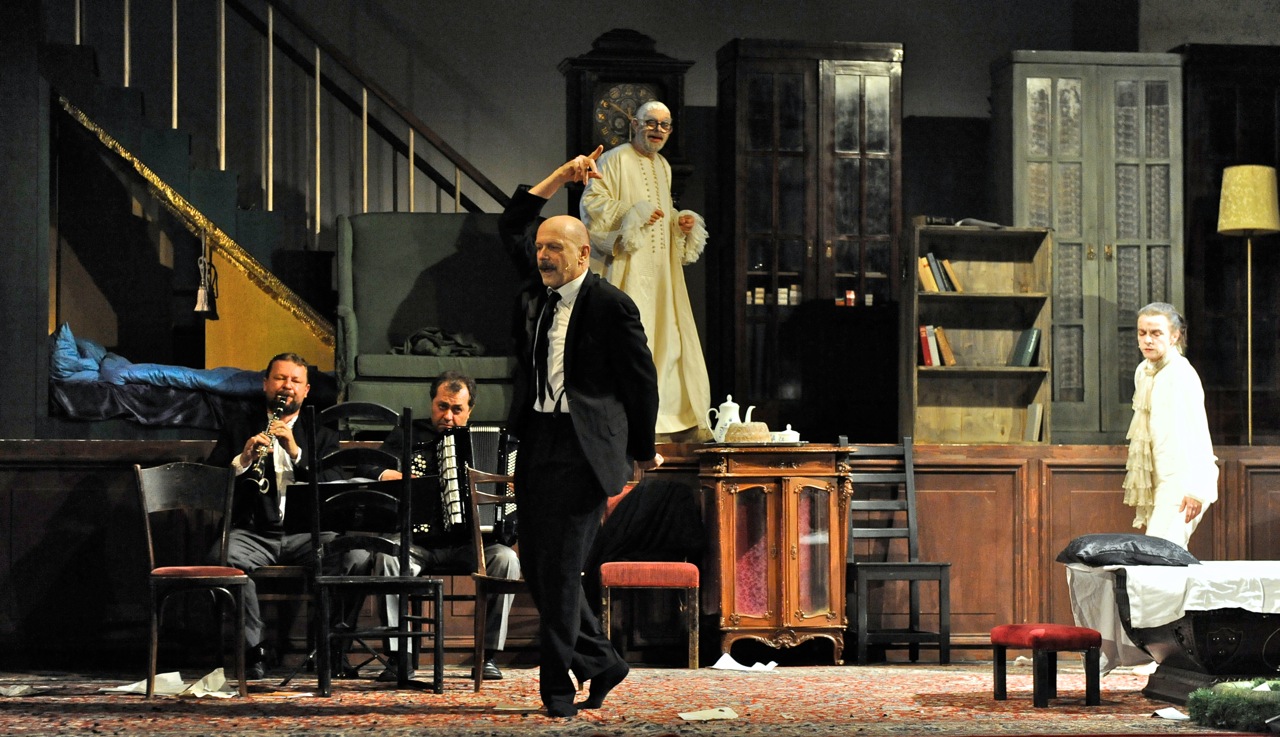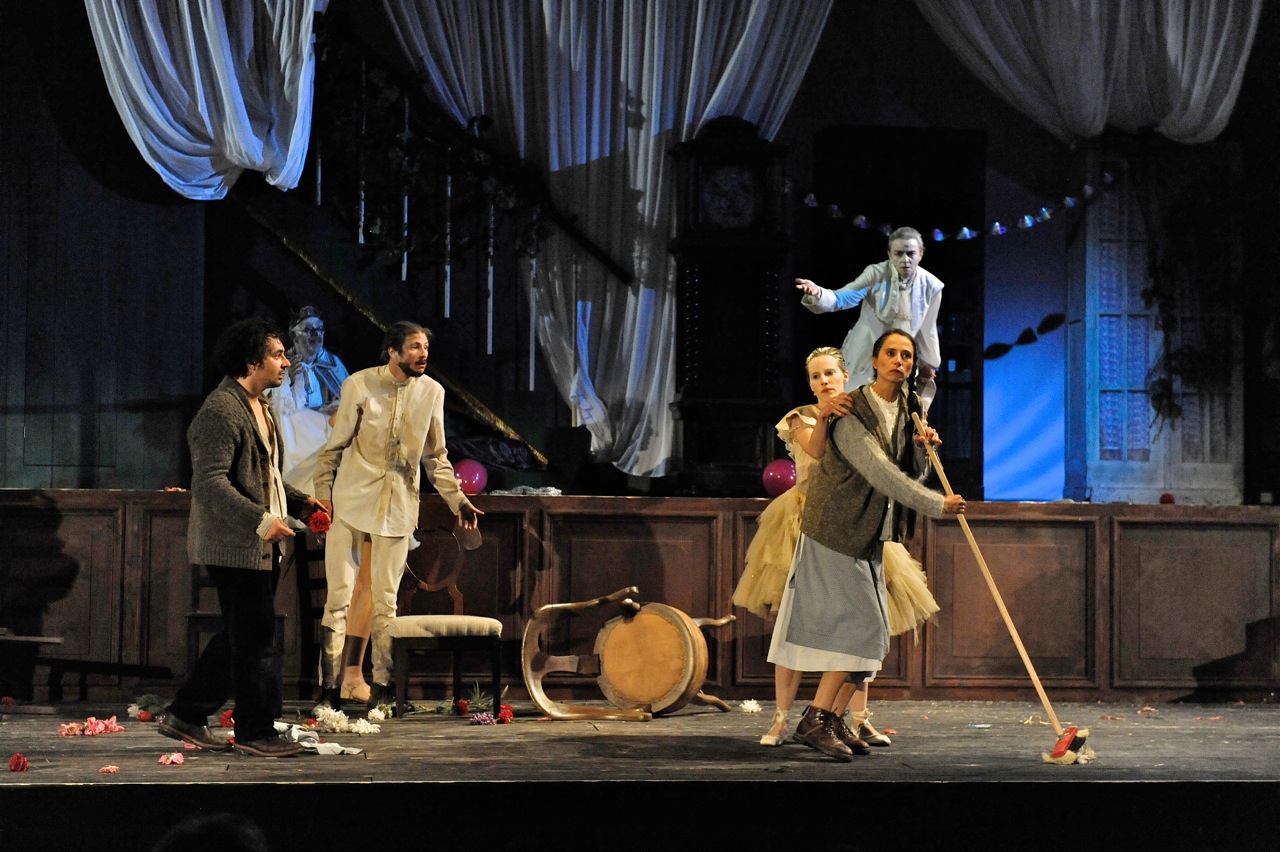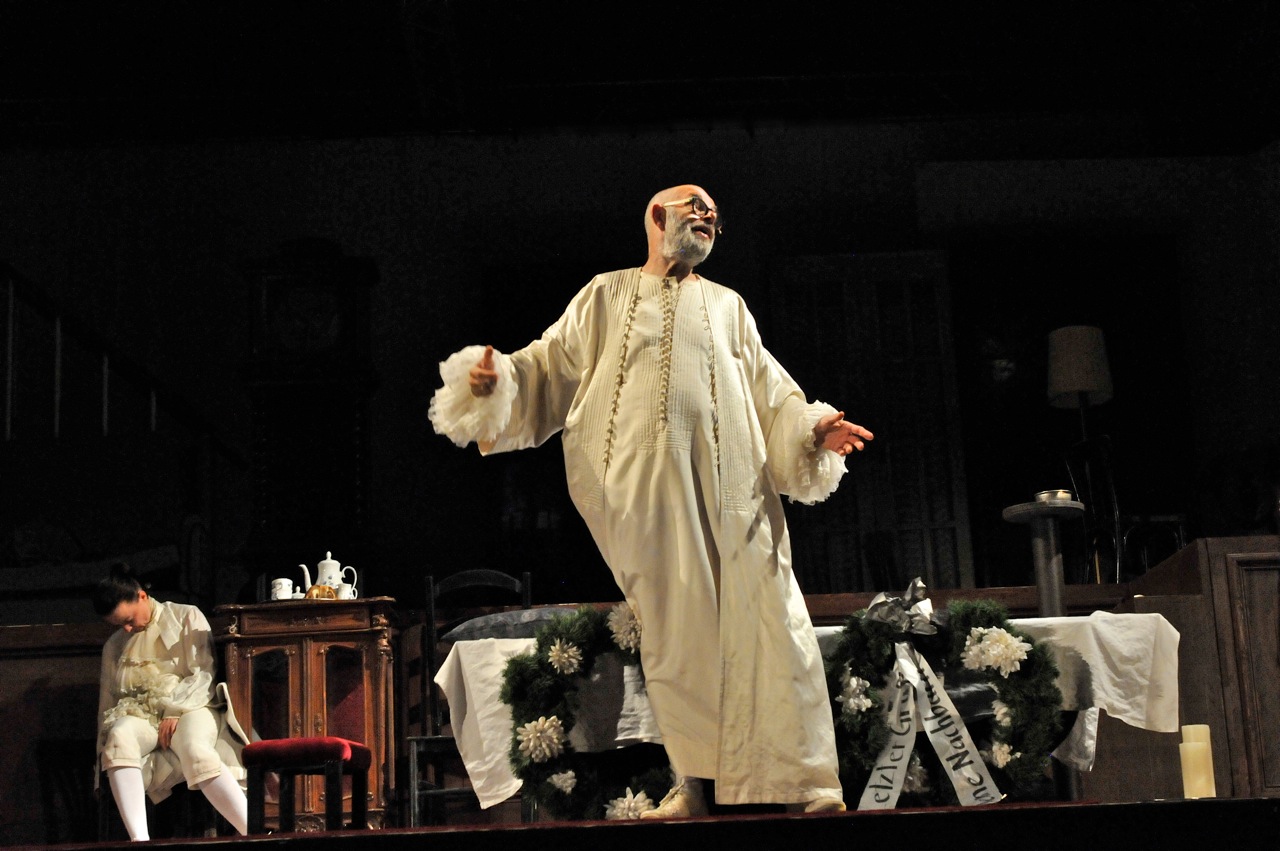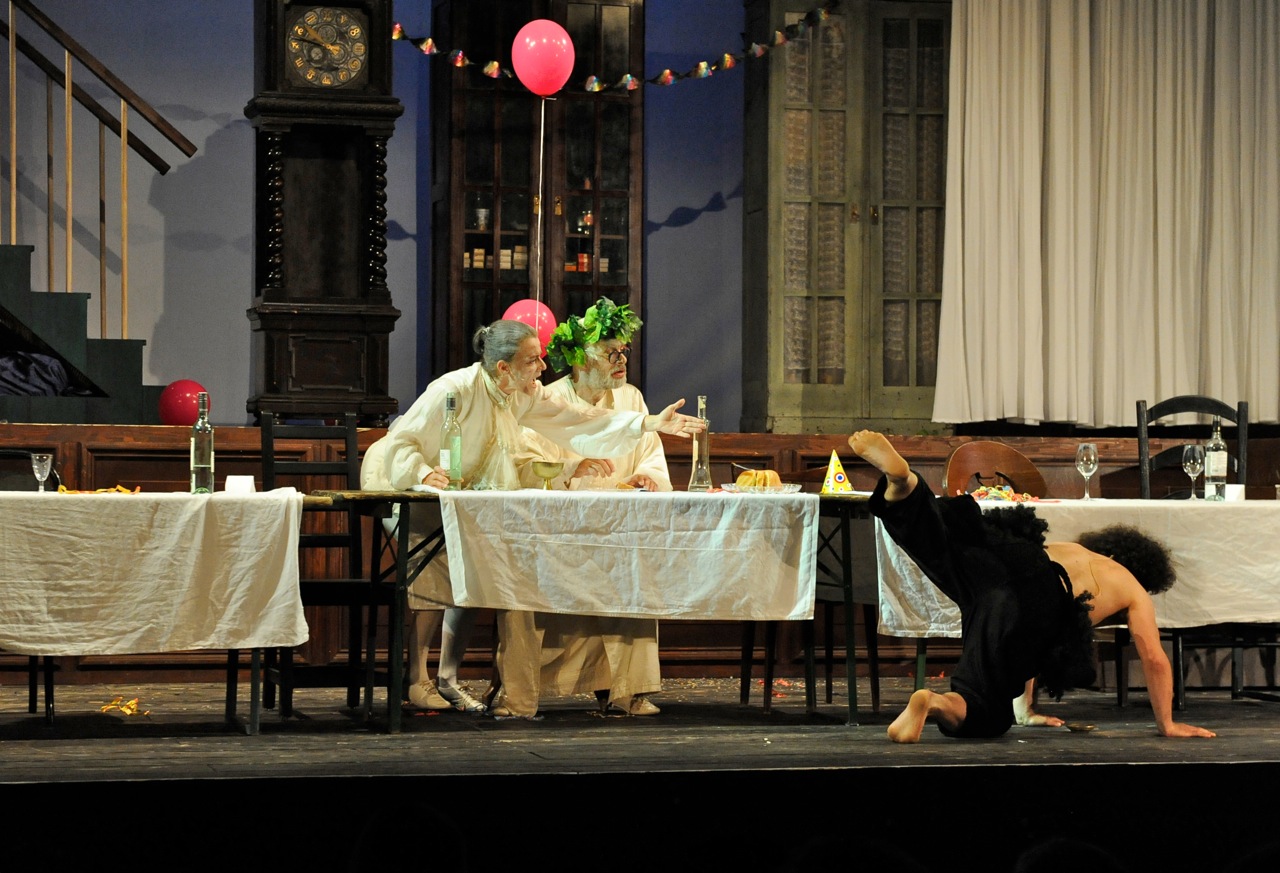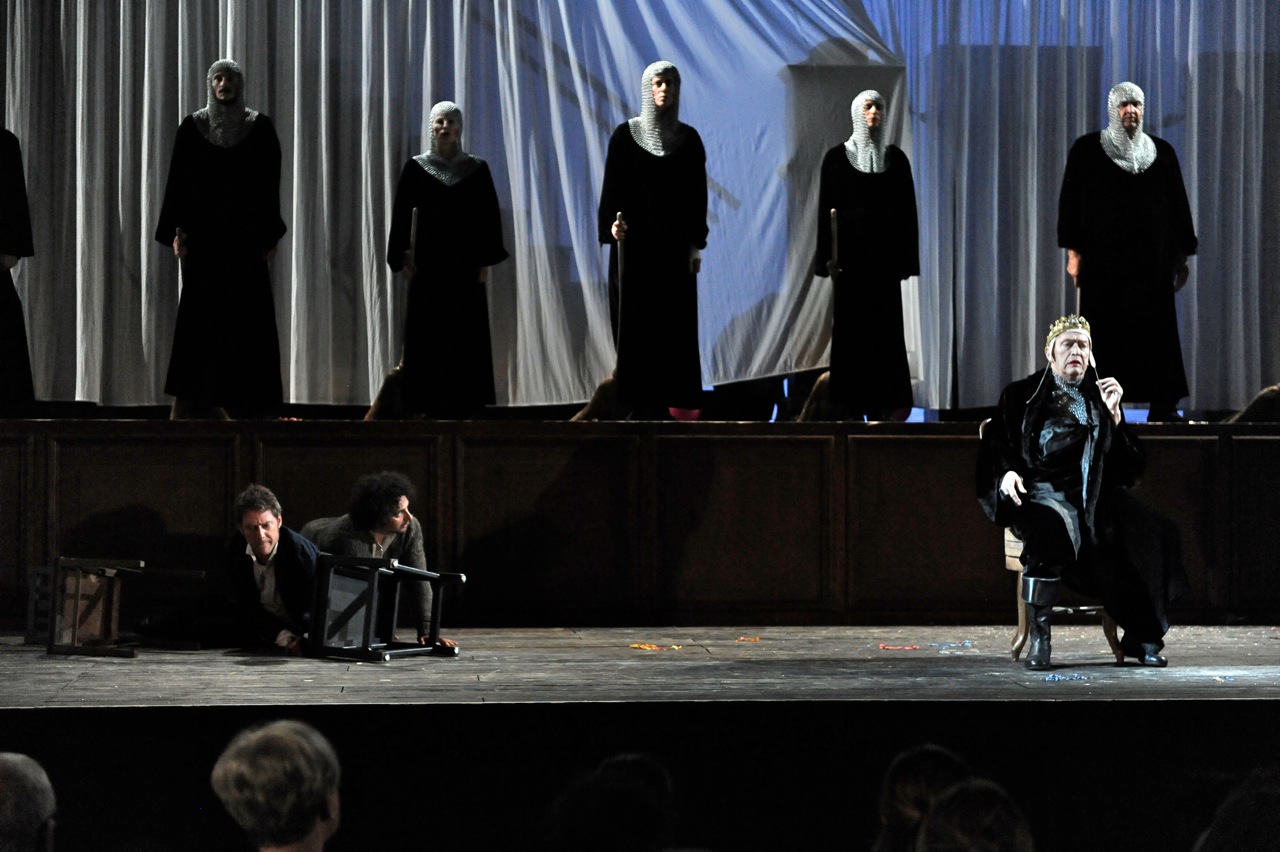“The piece possesses a peculiar charm and magic. Hope and happiness, temptation and seduction, downfall and triumph are symbolically captured through allegorical indirectness,” a symbolism that Cornelia Rainer “concretely connects with human self-responsibility, especially in the face of powerful fairies and spirits:
Adventurous beings wreak havoc.
They are described like humans, but their power surpasses that of mortals. And their weaknesses are marked with humor.
And the humans? They rely on the spirit world, which is supposed to turn everything for the better. They also appear cheerful and carefree at first glance. Yet, in the supposedly comedic characters, life anxieties and lies reveal themselves, manifestations of human vices. Fragile figures, marked by life, are forced into comic roles. The list of potential both tragic and comedic suicides in Raimund’s works is long: Not only Florian and Mariandel, but also Alcinde and Hoanghuh in “Moisaru’s Magic Curse,” Amphio and Nachtigall in “The Chained Fantasy,” Valentin and Flotwell in “The Spendthrift,” Rappelkopf and August in “The Alpine King and the Misanthrope.”
Biedermeier coziness, naive comedy, and fairytale idyll are closely linked to people’s fears and worries. Sentimentality and brutality, seriousness and touchingness, tragedy and comedy are inseparably intertwined.
So let us embark on an uncertain journey, on ‘a hike that leads from a gloomy mountain valley to the summit of laughing cheerfulness. Melancholy suddenly dissolves into joyful songs. And prepares for the next dark passage.’ Robert Musil
For the monsters show their heads and dance in circles. Desire exhausts itself in intoxication. A dark longing has seized Eduard. He does not want to settle for what his father left him. No. He wants to find the greatest treasure on earth. He must face numerous dangers until the secret is finally revealed to him. The union with a beloved being is (possibly) only a first step on a long journey. The goal is redemption. Happiness and liberation are only certain to him when he is ready to give up his pursuit. The transience of all earthly things, the vanity of this world—the temptation must be overcome. And redemption is tied to one’s own overcoming.
Eduard’s journey resembles that of a driven, searching man. He must improve himself, confess to remorse and penance. ‘The baroque idea of redemption harbors the conflict between good and evil, heaven and hell, God and the devil.’ Man is called upon to cast off his masks. Longimanus’ plan promises liberation through inner development. People, it seems to me, do not need to act in this regard, they just need to confess to their principles.
Raimund’s magical world as a substitute for the divine world? The fairies and spirits have great power, yet it seems as if an even greater power stands behind them. With them, I dare to take a secret look into the future: I suspect that man must decide his own fate. He is left to himself. No one can act for him. Everyone must prepare their own destiny. We can only be warned, but not saved.
- with
- Matthias Mamedof
- (Servant Florian),
- Andrea Eckert
- (The Hope),
- Eduard Wildner
- (Veritatius),
- Karl-Ferdinand Kratzl
- (The Spirit King ),
- Sunny Timmel
- (Pamphilius),
- Annette Holzmann
- (Mariandel),
- Lisa Weidenmüller
- (Amine),
- Alexander Meile
- (Eduard),
- Christoph Moosbrugger
- (Zephises),
- Sophie Behnke
- (A Ghost ),
- Tani Gabriel
- (A Ghost ),
- Ulrike Hübl
- (A Ghost ),
- Florian Klingler
- (A child ),
- Ronald Rudoll
- (A Ghost )
- Direction and Textadaptation Cornelia Rainer
- Stage Design Eva Schwenkel
- Costume Design Nina Ball
- Music klezmer reloaded
Premiere
July 21, 2016

